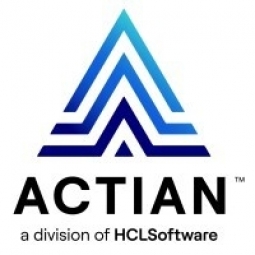Customer Company Size
Mid-size Company
Region
- Europe
Country
- United Kingdom
Product
- Actian Ingres Database
- Actian Ingres Replicator
- Actian Ingres OpenROAD
Tech Stack
- Ingres Database
- OpenROAD
- XForms
Implementation Scale
- Enterprise-wide Deployment
Impact Metrics
- Cost Savings
- Productivity Improvements
Technology Category
- Application Infrastructure & Middleware - Database Management & Storage
- Platform as a Service (PaaS) - Application Development Platforms
Applicable Functions
- Business Operation
Use Cases
- Regulatory Compliance Monitoring
Services
- Software Design & Engineering Services
About The Customer
The Pesticides Safety Directorate (PSD) is an executive agency of the UK Department for Environment, Food, and Rural Affairs. The organization’s mission encompasses ensuring the safety, effectiveness, and regulatory compliance of plant protection products used by both industry and amateur gardeners. It also regulates a market worth around £450 million in the UK and a similar figure in overseas exports, and shapes UK policies on pesticide issues. The agency operates with a staff of only 200, making efficiency paramount. Technology is central to the organization and is the backbone of everything that they do.
The Challenge
The Pesticides Safety Directorate (PSD), an executive agency of the UK Department for Environment, Food, and Rural Affairs, was facing the challenge of keeping pace with rising regulatory challenges without increasing costs. The organization’s mission encompasses ensuring the safety, effectiveness, and regulatory compliance of plant protection products used by both industry and amateur gardeners; regulating a market worth around £450 million in the UK and a similar figure in overseas exports; and shaping UK policies on pesticide issues – all with a staff of only 200. Technology plays a vital role in making this possible. Most recently, Park’s group was called on to deliver a particularly high-profile project – enabling the electronic delivery of all services, followed by the introduction of a complete, end-to-end electronic workflow for the entire new product application and approval process.
The Solution
PSD’s database technology of choice is Ingres Database, the leading open source database for business-critical applications. Today, PSD runs Ingres Database on Windows 2003, where it services tens of thousands of internal queries and serves between 300,000 and 500,000 Web pages each month. Ingres has earned PSD’s loyalty through its reliability and robustness. For its latest initiatives, the flexibility of Ingres Database, combined with the OpenROAD open source application development environment, provide a cost-effective platform to deliver new capabilities. In the next phase of the project, Park’s group will digitize the completion and submission of product applications – a process which now involves incoming paper forms being manually logged into the Ingres-based system.
Operational Impact
Quantitative Benefit

Case Study missing?
Start adding your own!
Register with your work email and create a new case study profile for your business.
Related Case Studies.

Case Study
Remote Monitoring for Environmental Compliance
Emerson wanted to provide a connected environmental analyzer to their customers. They wanted to leverage IoT technologies to provide a software solution that was easy to use, real-time and centralized. Compliance with pollution control board guidelines and the ability to remotely calibrate and troubleshoot these devices was the primary objective. Requirements - Centralized Remote Monitoring. - IoT Based Smart Environmental Analyzers. - Remote Calibration and Troubleshooting. - User Friendly Application. - Reporting & Dashboards. - Compliance with pollution control board guidelines.

Case Study
ELI LILLY ADOPTS MICROMEDIA’S ALERT NOTIFICATION SYSTEM
Pharmaceutical production is subject to a strict set of enforced rules that must be adhered to and compliance to these standards is critically necessary. Due to the efforts of WIN 911’s strategic partner Micromedia, Lilly was able to adopt an alarm notification infrastructure that integrated smoothly with their existing workflows and emergency hardware and protocols. These raw energy sources enable the industrial process to function: electricity, WIN-911 Software | 4020 South Industrial Drive, Suite 120 | Austin, TX 78744 USA industrial steam, iced water, air mixtures of varying quality. Refrigeration towers, boilers and wastewater are monitored by ALERT. Eli Lilly identified 15000 potential variables, but limitations compelled them to chisel the variable list down to 300. This allowed all major alarms to be covered including pressure, discharge, quantity of waste water discharged,temperature, carbon dioxide content, oxygen & sulphur content, and the water’s pH.

Case Study
IoT Solutions Give Commercial Fishing Real-time insights
Technology to support vessels in the commercial fishing industry had not changed significantly since the advent of radar. Over the past 40 years commercial fishing in the United States has continued to be one of the most active, yet regulated industries. The combination of federal regulations and lack of technology created an opportunity for Faria Watchdog to go-to-market with a solution.
Case Study
Nfairlending Case Study
Erin Goodall, vice president and director of compliance at Valliance Bank, was the sole member of the compliance team. She was responsible for analyzing all the bank’s fair lending data to identify redlining, disparities, and any potential violations of the Community Reinvestment Act (CRA), Home Mortgage Disclosure Act (HMDA) and other laws. This was a time-consuming process, taking up to 96 hours per quarter, in addition to her general compliance responsibilities. She also had to decipher what the results meant and spent hours creating reports to explain the insights to the board, management, and compliance committees.
Case Study
Digital Transformation of FOSIS through AuraQuantic Platform
The Solidarity and Social Investment Fund (FOSIS), a service of the Chilean Government, was faced with the challenge of standardizing its administrative processes to comply with the new regulatory framework established by the Law of Digital Transformation of the State (LTDE). The LTDE focuses on updating administrative procedures and document management in public administration through digital transformation. It also mandates that all communication related to administrative procedures between different public bodies must be carried out electronically. FOSIS had been using the AuraQuantic platform for over 14 years to automate different internal processes. However, with the introduction of the new LTDE framework, the institution needed to launch an ambitious project to align with the new regulations.
Case Study
Planters Bank Grows Securely With Arctic Wolf for Security Operations
Planters Bank faced significant challenges in managing and securing its diverse and distributed network infrastructure. The bank needed to fulfill audit and regulatory compliance requirements, particularly those outlined by the Federal Financial Institution Examination Council (FFIEC) and overseen by the Federal Deposit Insurance Corporation (FDIC). Additionally, the bank's IT team lacked the resources to achieve 24/7 monitoring, which left them vulnerable to potential threats and compliance issues. The existing piecemeal systems were insufficient for comprehensive monitoring, and the bank risked missing dangerous threats due to the lack of visibility and real-time insights.







